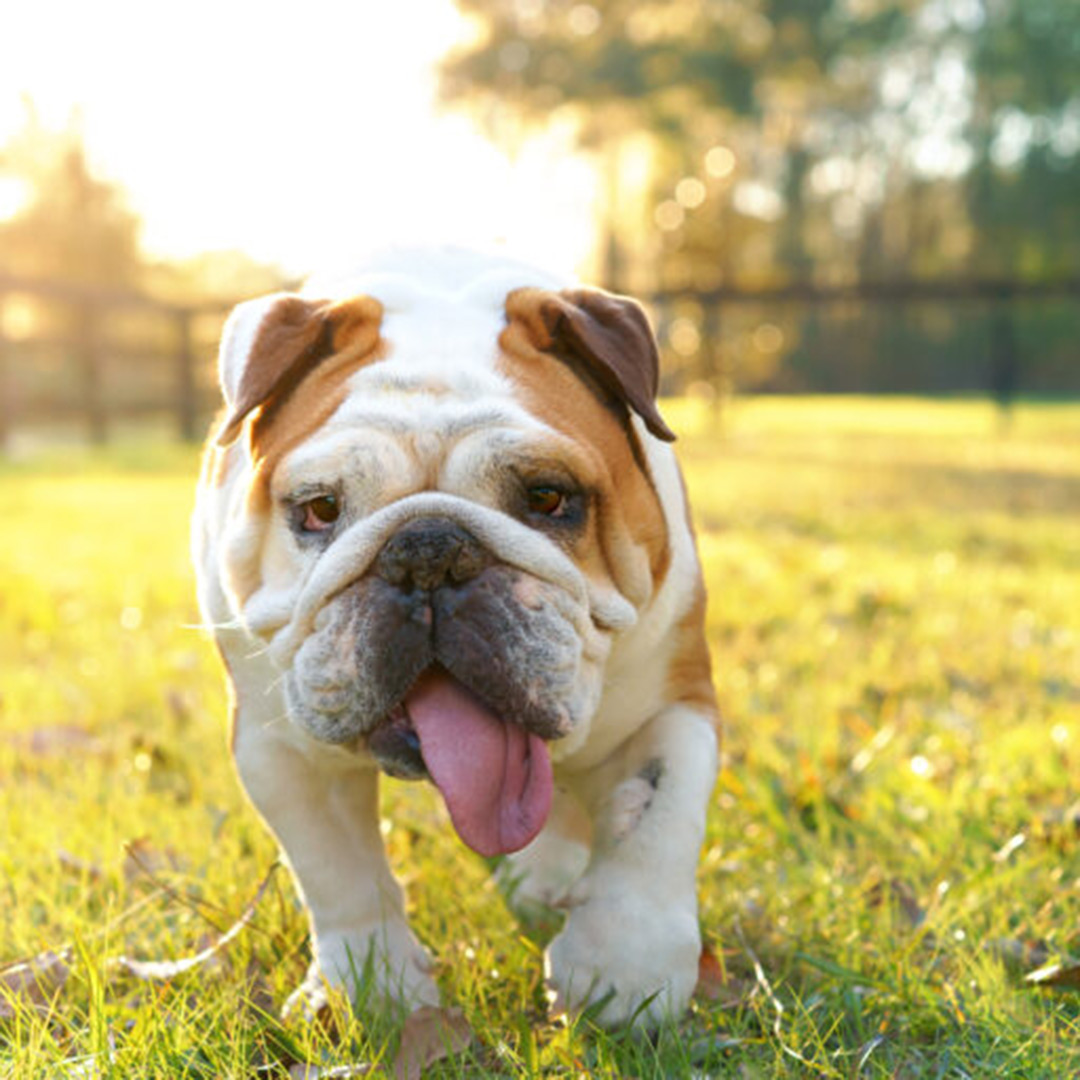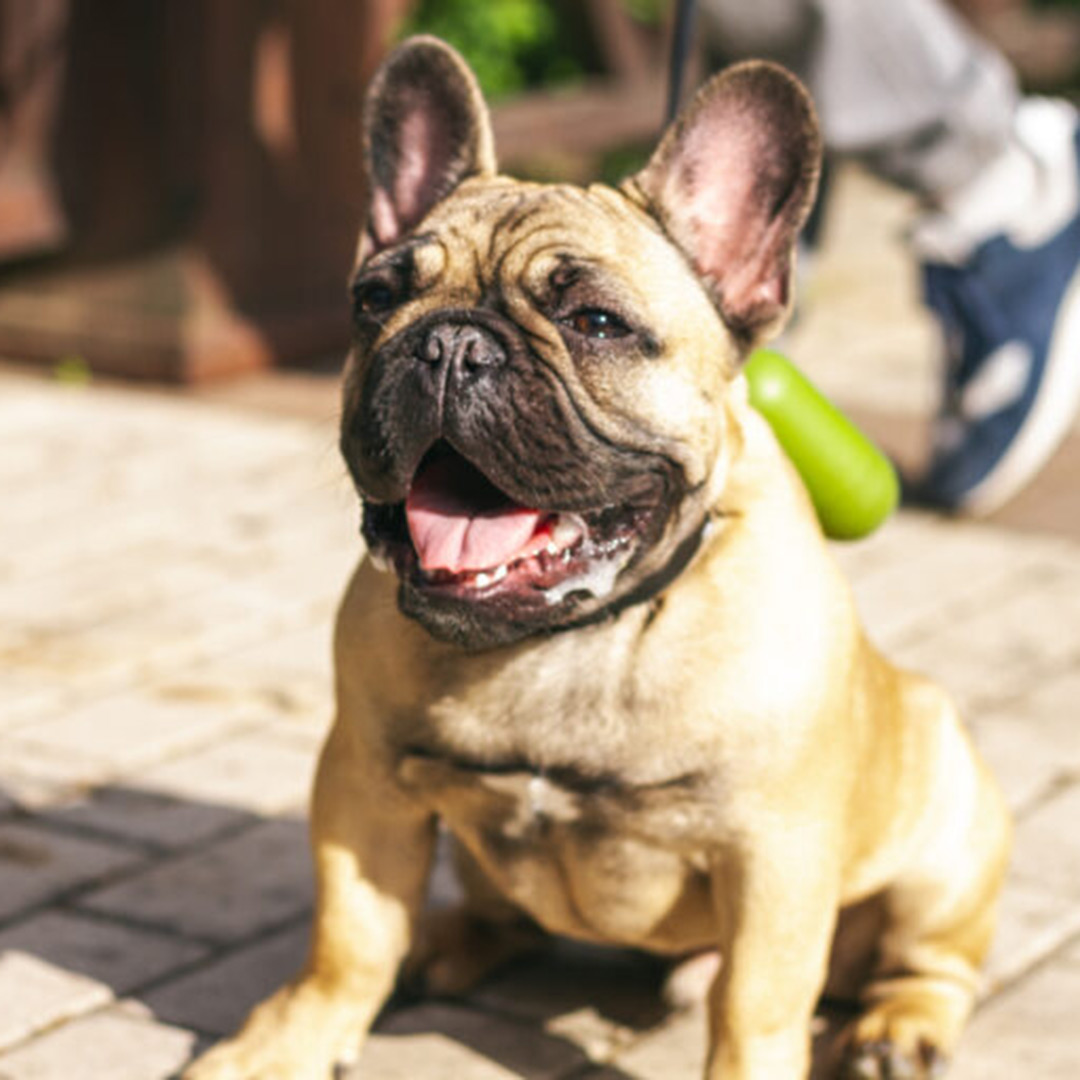Keep your short-snouted breeds safe in hot weather
As I write this article, I only have to think back for four days to recall two pets who presented to Tampa Veterinary Hospital suffering from life-threatening heatstroke. Beyond the diagnosis, both pets had something in common. They were both ‘short-snouted’ breeds- in anatomical terms- brachycephalic. In plain English, the skull of the animal is shorter than normal for the species. Common brachycephalic breeds are Bulldogs (including Frenchies), Pugs, Boxers, Boston Terriers, Pekingese- and sometimes other mixed breeds with these bloodlines.
 Any pet can suffer from heatstroke if they are outdoors in the heat for too long, but these breeds that are more prone to issues due to their anatomy. They will have a harder time in the heat. But why?
Any pet can suffer from heatstroke if they are outdoors in the heat for too long, but these breeds that are more prone to issues due to their anatomy. They will have a harder time in the heat. But why?
One way a dog regulates their body temperature is by panting. Dogs with short snouts are very inefficient at panting, therefore they expend a lot more energy when trying to cool themselves.
Tips to prevent heatstroke
- Keep them indoors: Avoid exposing your brachycephalic pet to excessive heat by keeping them indoors during the hottest parts of the day. Ensure that the indoor environment is cool and well-ventilated.
- Provide shade: If your pet spends time outside, make sure there is ample shade available for them. Create shaded areas in your yard using umbrellas, tarps, or trees. This helps them escape direct sunlight and reduces the risk of overheating.
- Limit exercise: Brachycephalic pets have difficulty regulating their body temperature during exercise. Avoid strenuous activities during hot weather, as it can quickly lead to overheating. Opt for shorter and less intense walks or play sessions in cooler parts of the day.
- Use a harness instead of a leash connected to their collar. This will not add additional resistance to the airway.
- Use cooling mats or vests: Cooling mats or vests designed for pets can be helpful in keeping your brachycephalic pet cool. These products are usually activated by water and provide a cool surface for your pet to lie on or wear, aiding in heat dissipation.
- Hydration is key: Ensure that your pet has access to fresh, cool water at all times. Brachycephalic pets can be prone to dehydration, so encourage them to drink regularly. You can even try adding ice cubes to their water bowl to help keep it cool for longer.
- Avoid hot surfaces: Hot pavement, sand, or concrete can quickly heat up and burn your pet’s paws. Stick to shaded areas or walk your pet during cooler parts of the day to prevent burns and discomfort.
- Avoid leaving them in parked cars: Never… ever… leave your brachycephalic pet (or any pet for that matter) unattended in a parked car, even for a short period. Cars can heat up rapidly, leading to life-threatening conditions for your pet.
- Watch for signs of overheating: Be vigilant and watch for signs of overheating, which may include excessive panting, drooling, disorientation, weakness, and collapsing. If you suspect your pet is overheating, move them to a cool area, provide water, and contact your veterinarian immediately.
- Consider grooming: Regular grooming can help remove excess hair and improve airflow around your pet’s body. However, be cautious with shaving or trimming their hair too short, as it can also expose them to sunburn.
- Consult with your veterinarian: Reach out to your veterinarian for breed-specific advice and additional tips on how to keep your brachycephalic pet safe during hot weather. They can provide tailored guidance based on your pet’s individual needs.

What are the signs of an overheated pet?
- Excessive panting: Dogs regulate their body temperature primarily through panting. If your dog is panting excessively and unable to calm down, it may indicate heat stroke.
- Excessive drooling: Heat-stressed dogs often drool excessively. The saliva may be thick and ropey in consistency.
- Rapid or irregular heartbeat: An elevated heart rate or an irregular heartbeat can be an indication of heat stroke.
- Elevated body temperature: A dog’s normal body temperature ranges from 99.5 to 102.5 degrees Fahrenheit (37.5 to 39.2 degrees Celsius). If your dog’s temperature rises above 105 degrees Fahrenheit (40.6 degrees Celsius), it is considered a medical emergency.
- Reddened gums and mucous membranes: Heat-stressed dogs may have bright red gums or mucous membranes, indicating poor oxygenation.
- Weakness and collapse: As heat stroke progresses, dogs may become weak, lethargic, and may even collapse.
- Vomiting and diarrhea: Heat stroke can lead to gastrointestinal distress, resulting in vomiting and diarrhea.
- Seizures or tremors: In severe cases, dogs may experience seizures or tremors due to the elevated body temperature affecting the nervous system.
- Disorientation and confusion: Heat-stressed dogs may appear disoriented, confused, or have difficulty maintaining balance.
- Unresponsiveness or loss of consciousness: In critical cases, dogs may lose consciousness or become unresponsive.
If your pet has been outdoors or in a hot environment and you see any of these signs, contact your veterinarian immediately to seek help. Quickly move your pet to a cool/shaded area, provide access to fresh water, and wet their body with cool (not cold) water to help bring down their temperature. However, the primary treatment should be administered by a veterinarian to ensure proper care and to address any complications associated with heat stroke.
If possible, call your veterinarian prior to arrival and notify them of your estimated arrival time, so they can be prepared for your arrival. Quick action will be needed to lower their temperature, administer fluids and possibly provide oxygen therapy. Time is of the essence, and every minute counts.
